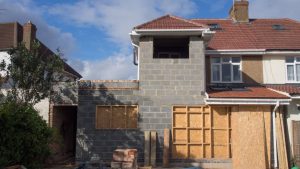

Starting a home extension project can be a thrilling experience that can change your living area and even raise the value of your house. But it also necessitates careful budgeting and knowledge of the associated expenses. Precisely planning your budget for your extension is essential to guaranteeing the project proceeds without unanticipated financial hardship. This thorough guide will help you plan and budget wisely by guiding you through all of the costs involved in adding on to your home.
Determining the parameters and scope of your extension project is crucial before you start crunching figures. The size, style, and material quality of the extension all have a big impact on the final cost. The cost effects of adding a single room, expanding your kitchen, or building a second story will vary.
Architects, surveyors, engineers, and other specialists are involved in the planning of your extension. Ten to fifteen percent of your project’s overall cost may go towards these services.
Depending on where you live and what kind of expansion you’re doing, you might need to apply for and pay for planning clearance. Even if “permitted development rights” are in place for your project, a lawful development certificate might be necessary to prove it.
The largest portion of your budget will go towards construction costs. These can vary widely depending on the region, the materials used, and the complexity of the project.
Finishing touches can make a big difference in the look and feel of your extension, but they can also be a significant cost area.
Extending your home often means extending your existing utilities and services. This can include:
Don’t forget to budget for external work related to the extension.
It’s wise to set aside a contingency fund, typically around 10–20% of the project’s total cost, to cover unexpected expenses. Unexpected issues can arise, especially in older homes, where underlying problems may not be apparent until construction begins.
Invest time in planning every aspect of the extension in detail. The more precise your plans, the more accurate your budget estimates will be.
Obtain multiple quotes for the work to ensure you are getting fair and competitive pricing.
Don’t be afraid to negotiate with contractors or suppliers to try to get a better deal.
If budget constraints are tight, consider completing the extension in phases. This allows you to spread out the financial burden over time.
Consider taking on some of the finishing work yourself, such as painting or simple tiling, to reduce costs.
Planning a house extension is an involved process that requires careful financial planning and budget management. By understanding all the cost components involved and planning for contingencies, you can ensure that your project remains within budget and fulfils your expectations. Remember, the key to successful budget management lies in meticulous planning, thorough research, and continuous monitoring of expenses throughout the project.
With the right approach, your house extension can be a rewarding investment that enhances your living space and increases your property’s value. It is also important to consider hiring a reputable contractor who can provide you with a detailed breakdown of costs and timelines. By obtaining multiple quotes and comparing them, you can ensure that you are getting the best value for your money.
Additionally, setting aside a buffer fund for unexpected expenses can help prevent any financial stress during the construction process. By following these guidelines and staying diligent in your budget management, you can achieve the house extension of your dreams without breaking the bank.
The case of Colin Marma, who went missing in Garrison, New York, has now turned…
In numerology, angel numbers are sequences of numbers that are known to represent divine messages…
Beautiful hand-drawn animation, fascinating environments, and cozy storytelling abound at Studio Ghibli. You are on…
Renowned for their vibrant food scene, low prices, and enticing tastes, Chinatown hawker centres are…
The Indian Premier League (IPL) is one of the world's biggest cricket leagues, famous for…
There are a lot of websites on the internet that provide a range of services;…